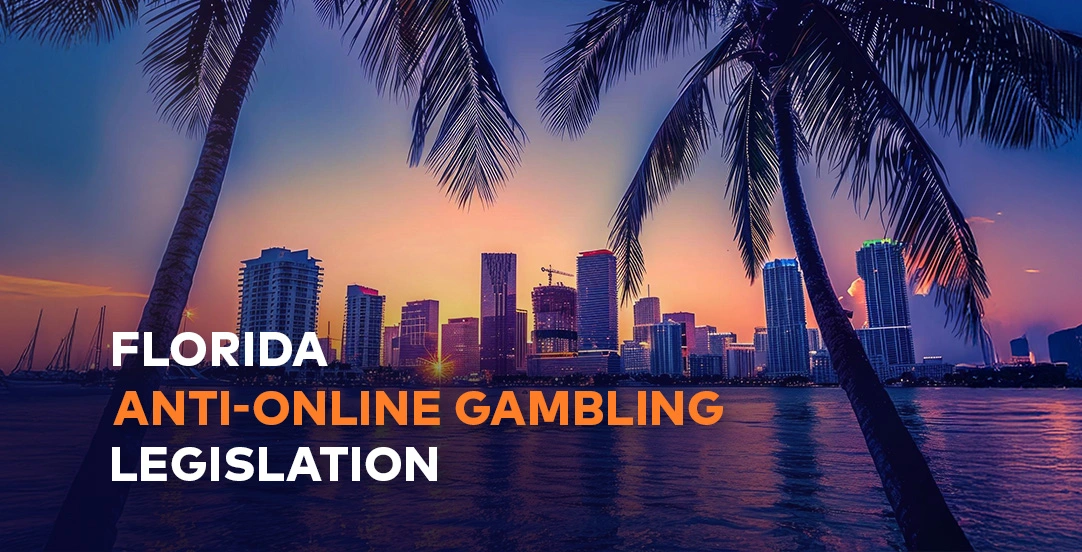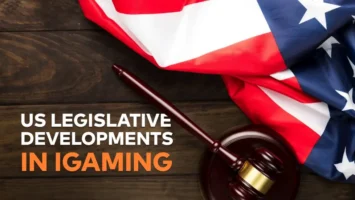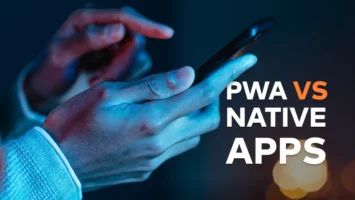Florida anti-online gambling legislation

Florida anti-online gambling legislation has been in the spotlight as efforts to outlaw online sweepstakes casinos and non-tribal mobile sports betting failed to gain traction in the state legislature. This development is more than a fleeting news item—it is a defining moment in the ongoing debate over regulation, consumer freedom, and the digital transformation of gambling across the United States.
Understanding the legislative setback
This year’s legislative session saw two major anti-sweepstakes bills in play: Senate Bill 1404 and House Bill 1467. Both aimed to restrict or criminalize unregulated online gambling activity, targeting platforms that skirt traditional gaming laws by operating under promotional contest frameworks.
SB 1404, championed by Sen. Corey Simon, was designed to ban internet casino gaming and mobile sports betting outside the exclusive agreement with the Seminole Tribe, which runs the Hard Rock brand in Florida. The intent was clear—consolidate digital betting under tribal control, effectively sidelining competition from sweepstakes operators.
However, the bill’s journey ended abruptly when a substitute version failed to advance out of the crucial Senate Appropriations Committee on Agriculture, Environment, and General Government. Without further action from Governor Ron DeSantis to extend or call a special legislative session, the bill is shelved for now.
The sweepstakes casino battleground
Sweepstakes casinos have long navigated legal grey areas by positioning themselves as promotional contests rather than traditional gambling operators. SB 1404 sought to shut down these avenues, but critics argued this would restrict consumer choice and cement the Seminole Tribe’s monopoly over digital wagering.
House Bill 1467 was another pivotal measure. It attempted to criminalize sports betting outside the state-sanctioned Hard Rock channel, extend the regulatory reach of the Florida Gaming Control Commission (FGCC) to daily fantasy sports (DFS), and close ethical loopholes for ex-FGCC officials. This bill passed several legislative gauntlets but met its end in the Commerce Committee after a series of last-minute amendments muddled its progress.
The national context and industry reaction
Florida’s legislative failures are part of a broader national trend. The Social and Promotional Games Association (SPGA) quickly framed the outcome as a win for consumer choice and a rebuke of anti-innovation sentiment. “The defeat of these bills continues a clear national trend… Lawmakers across the country are rejecting these anti-innovation, anti-business efforts that attempt to dictate what games American adults can play on their phones,” said the SPGA.
Florida joins a list of states including Arkansas, Maryland, and Mississippi, where similar anti-sweepstakes efforts recently fizzled out. The SPGA suggests these outcomes reflect growing resistance to measures that privilege incumbents at the expense of new entrants and digital entertainment options.
Economic stakes and policy divides
Advocates for tighter controls, including supporters of SB 1404 and HB 1467, argue that restricting online sweepstakes and non-tribal sports betting is essential for consumer protection and upholding the legal integrity of the Seminole gaming compact. They contend regulatory clarity would help address potential fraud, problem gambling risk, and illegal market operations.
Opponents counter that such legislation risks stifling innovation, limiting consumer freedom, and effectively granting a monopoly to established tribal operators. The SPGA went even further, stating that the bills, if enacted, would have contributed to Florida’s ballooning multi-billion dollar state budget deficit by driving out competitive casino operators and associated tax revenue.
What happens now in Florida
With both bills withdrawn or postponed, sweepstakes casinos and DFS operators have a temporary reprieve in Florida. For the remainder of 2025 at least, these platforms can continue to operate in a space where the legal boundaries remain fuzzy. The failure of the legislation does not resolve the fundamental question of how best to regulate, tax, or integrate online gaming into Florida’s broader economic and cultural fabric.
The decision by Governor DeSantis looms large. Should he choose to revive these bills in an extended or special session, the balance of power—between tribal operators, state revenues, and digital-first contestants—could shift drastically.
Why Florida matters to the wider iGaming market
Florida’s population scale, tourism appeal, and reputation as a bellwether state mean its policy outcomes reverberate nationally. Its approach to online gaming regulation could set precedents for other states grappling with similar issues, particularly concerning sweepstakes models, consumer protections, and tribal gaming rights.
Other states are watching closely. The patchwork landscape—where New Jersey leans toward stricter regulation and New York’s recent amendments have drawn criticism—highlights the lack of consensus on the role and scope of online gambling innovation in the U.S.
The future for iGaming in Florida and beyond
The defeat of the anti-online gaming bills is, for industry observers, a snapshot of a larger story. It points to ongoing market uncertainty, heightened lobbying activity, and the constant tug-of-war between consumer expectations, public policy, and entrenched gaming interests.
Looking ahead, these developments may encourage more transparent dialogue around regulation, responsible innovation, and economic priorities. Business leaders, legislators, and advocacy groups all have a stake in determining how the digital gaming ecosystem evolves—from DFS and sweepstakes to fully-fledged online casinos and sports betting platforms.
Key takeaways for stakeholders
- The stalling of Florida’s anti-online gaming bills is a significant—though possibly temporary—victory for sweepstakes and non-tribal betting operators,
- The outcome aligns with a growing national pattern of legislative resistance to sweeping gambling bans,
- Florida’s unresolved regulatory landscape will remain an arena for legal, commercial, and grassroots activism throughout 2025.
Ultimately, the story of Florida anti-online gaming legislation is one of competing visions, economic realities, and the ongoing challenge of drawing sharp legal lines in a rapidly changing online marketplace. For now, the digital dice keep rolling in the Sunshine State, and the eyes of the U.S. gaming industry are watching where they land.



















